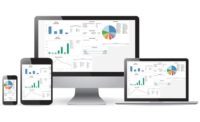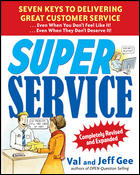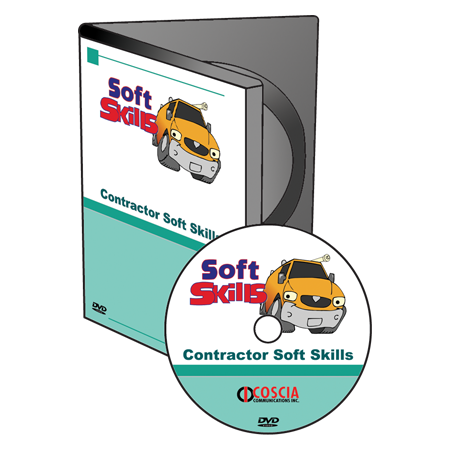Retail Insight: Using Software to Prepare Your Flooring Business for the Future

The owners of Bay View Flooring & Design in northern Michigan say that small changes and software dramatically impacted the store’s profitability.
Photo: Bay View Flooring & Design.
A few years ago, the flooring industry faced the uncertainty of a pandemic. Fortunately, most flooring dealers pivoted adroitly and saw business boom during that time. Today, flooring professionals are faced with a different type of potential threat. Many headlines warn of the impact of inflation and of possible economic downturns. Some retailers report already seeing a drop-off in traffic. But QFloors CFO Trent Ogden believes that just as with the pandemic, dealers can adapt and make changes to successfully weather whatever may be ahead.
“One of the most important things you can do to prepare for an uncertain future is to sharpen your saw,” Ogden said. “Sales may not be coming as fast as they have been, so you need to fine-tune the other parts of your business. Becoming better at just a few small things can result in big dividends, when it comes to operations and your businesses’ financial health.”

Photo: Bay View Flooring & Design.
Kathy Hyland, owner of Bay View Flooring & Design in northern Michigan, says that small changes she made dramatically impacted her profitability: “The past few years have been phenomenal. Not only has our business traffic increased, but profitability has skyrocketed. I attribute part of that to changes we made after a QFloors users’ benchmarking class in late 2019. They showed us that we needed to get our net profit higher, and talked about some steps we could take to do that. We took that challenge, and have made a few changes that have increased net profits to double digits.”
Hyland said she implemented settings in QFloors that gave her more accurate job costing and adjusted the commission schedule.
“That needed to happen,” she said. “I can’t imagine running a business without job costing.”
“I can’t imagine running a business without job costing.”
– Kathy Hyland, owner, Bay View Flooring & Design
Ogden said the key to making wise decisions in steering your business successfully, through calm or rocky waters, is making sure you are on top of your financial statements and using them to guide your decisions. Hyland does just that, using QFloors business management software.
“It’s been helpful to be able to watch and track things with the great reports in our software system,” she said. “There are comparison reports for different time frames. We can watch expenses. And at any given time, I know right where we’re at. With the changes we’ve made the past few years, combined with the tracking we are able to do through our software, our net profit is in the double digits, and our gross profit is around 40.”
Another beneficial adjustment Bay View Flooring made was realizing their business was in a “use tax” state, and changing their tax practices accordingly. That one change brought Hyland's bottom line up over 1-2 points.
“I have been a retailer for 30+ years, and I had no idea that I should have been utilizing use tax all along,” Hyland said. “I think a lot of retailers are in the same boat. We thought we knew exactly what we were doing, tax wise, and yet when QFloors started talking to me about use tax, I was floored. But I talked with my accountant and we researched together, and saw that it was right and legal.”
Among the 44 states that have sales tax laws, 28 of them implement use tax in the floor covering industry and similar industries. In these states, use tax—as opposed to sales tax—is applied to the dealer’s cost of installed materials and no sales tax is charged to the customer. Some states only apply use tax to certain types of floor covering (carpet versus hard surface) and some apply it to only certain types of jobs (commercial versus residential, new construction versus remodel, etc.). So, if you are in a use tax state, Ogden advises that you research exactly how this is applied in your state. It will pay off, literally.
Another way to strengthen and prepare for the future is to automate. Automating operations within your flooring business helps you run things lean, when needed.
“In a nutshell, you want to operate your business as smartly as possible to give yourself some breathing room for the inevitable slower sales,” Hyland added. “You need good software to keep everything organized and in order. There’s no way you can do it without good software. When you have that in place, watch your numbers and be vigilant. Look to the future and determine where you are headed, as much as possible.”
Hyland advises retailers to prepare for what’s ahead: “Our first flooring business weathered the recession that hit after 9/11. We had 80 employees and four stores, and it was difficult. But as an owner—at least as a successful owner—you have to look at your business as a whole, and make difficult decisions on how to stay afloat and move forward. Sometimes it feels really hard to do that, but you have to know your business and be prepared and identify where to make those cuts first. Not only with employees, but just expenses in general.”
If times get lean, flooring dealers may find they need to operate their flooring business with fewer resources - human and financial. Utilizing time-saving software into your business processes can help you do just that. But now is the time to start, according to Trent Ogden.
Of course, no one knows for sure whether a recession is around the corner or not. But regardless, taking the necessary steps to run your business smarter and more efficiently will make a significant difference, both in your bottom line, and in your resiliency as a company.
Looking for a reprint of this article?
From high-res PDFs to custom plaques, order your copy today!









